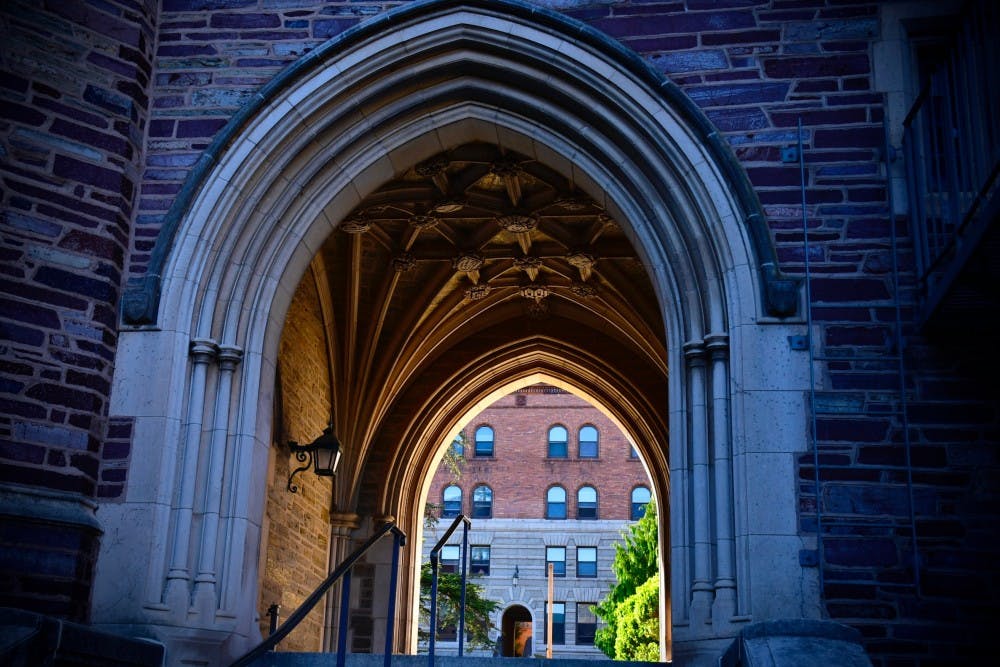We live in a world now that expects so much of our generation at such a young age. Fifth graders are designing a hydrogen atom out of paper mâché on board their flights to build houses in underdeveloped countries. High schoolers are updating their CVs while winning gold medals in three varsity sports simultaneously. Stress starts as early as kindergarten because certain schools promise to position young kids on the “track to success.” Perhaps the child at the exclusive private school will be using vegan, all-natural crayons instead of store-bought ones when she learns how to color within the lines. Because as we all know, that is what kindergarteners do.
It all starts with “What do you want to be when you grow up?”
A whole lifetime of ups and downs, twists and turns squeezed tightly into one narrow, simplified box. It’s funny how, over time, this question becomes more and more off-putting. When we are kids, the question is a shot in the dark. It’s going down the slide without seeing the bottom. It’s exciting. There are common occupations, such as being a lawyer or veterinarian. There are vague ones, like aspiring to be a scientist or those where you “catch the bad guys.” There are entertainers, like actors or rock stars. There are zookeepers and soldiers and ballerinas. Some kids want to be their parents. Some want to actually be parents. And for some, well, they just want to be mermaids. At that age, the question doesn’t mean anything — it’s just a fun activity. If anything, it is an exercise in adorability, so that adults can take pictures of little ones dressed as pilots and sous chefs.
However, as we grow up, it becomes the kind of question that can ostracize someone at a table full of college seniors. I’m looking at you, Karen. You know what you said.
When people ask us what we want to do in life, it can feel almost paralyzing, even for those of us who are more certain. A freshman who has always had a dream of working at Google might realize they didn’t enjoy their first COS class. A pre-med student who might have planned to go to medical school right out of college could find that the MCAT has different plans. An athlete who dreams of going pro might have to wait another year because of an unexpected injury. As much as we would like to have the answer, we can’t really know anything, and I think that is what makes that question so infuriating for us. Whether it is the asker’s intention or not, it immediately makes us feel as if we should know the answer.
Then there are those of us who are not sure what we want to do. Many of my friends wonder if they even have a passion at all. It’s a symptom of a much larger problem at Princeton. For some reason, there is an implied expectation that we should be able recite our whole life story, even while we are still in the process of writing it, ripping out pages and adding new ones (along with our 100-page theses). And even when you step outside Princeton, most employers are still going to ask you where you see yourself in five to 10 years. Why can’t I just be content with where I am right now? Why can’t our decisions today and the ones we make in the future be mutually exclusive? Also, please hire me.
Once, in her 20s, my mom was weighing the possibility of grad school with my grandfather, and worried that it was going to take up three years of her life. He told her, “Those three years will go by anyway.” We try to divvy up our lives into these clear-cut sections: four years of college, then two to four years of grad school, then two years in a managerial role, then vice president or medical resident or law clerk, and so on and so on. We try to fit our lives into these narrow and simplified boxes, but we don’t have to. We don’t have to have it all figured out; I guarantee no one does. We can take a leap into the unknown, we can go down the slide headfirst, we can stretch in the direction of our choosing, without a necessary beginning, middle, or end. Somewhere along the way, we will find our passion, which — contrary to popular belief — probably doesn’t have to be one thing for the rest of our lives.
After kindergarten ended, I remember I walked into my mom’s room crying, telling her I didn’t want to go to first grade. I didn’t want to get married. And I didn’t want to go to college. At five years old, I wanted to be an Italian soccer player. Two years later, I wanted to be a doctor because I claimed I could “stand the blood.” Then a veterinarian. Then an author. I entered Princeton thinking I wanted to major in neuroscience, which, as I quickly learned, is definitely not where my strengths lie. I still don’t know what I want to do, and that’s okay. If you are anything like me, you have never been one to color within the lines anyway.

Winnie Brandfield-Harvey is a senior Wilson School concentrator from Houston, Texas. She can be reached at wab2@princeton.edu.









